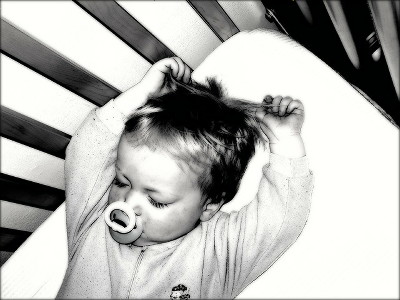Hair loss which pulls out my hair, Possibility induced by dietary habits

ByClappstar
Hair loss spots appear on the head due to the peculiarity of pulling out my hairHair loss (birth defect)Is a disease commonly seen in girls from elementary school to adolescence in humans and 2 to 4% of the population is said to experience experiencing differences in degree.
Similar to human hair loss, it is also found in animals that repeatedly pull out normal hair, but in experiments with mice, trichotillosis occurs in healthy mice due to a special dietary habit, It has become clear that the symptoms of disease mice are severe. It has already been reported that abnormal behaviors (obsessive behaviors) of humans and animals are improved by nutritional status, but on the contrary, it indicates that nutritional status may trigger mental illness or trigger the onset of this case It is the first time for me to study.
Details are as below.Purdue Newsroom - Scientist shows link between diet and onset of mental illness
Study on hair lossPurdue UniversityDr. Joseph Garner, Associate Professor of Animal Science and others of the University of Tokyo, initially anticipated that it could improve the abnormal behavior of the mouse pulling out hair,MonosaccharideWhenTryptophanRich food (sugar is 8 times normal food, tryptophan 4 times normal).
Mice that were the subject of experiments were genetically at high risk of abnormal behaviors such as "scraping" and "scratching", but contrary to the prediction, contrary to expectations, abnormal behavior of the mouse due to sugar and tryptophan- It seems that it got worse.
In the next experiment, at the start of the experiment, it was divided into 3 groups of mice with thin hair due to trichotillosis, mice with severe hair loss, and healthy (noticeable hair loss) mice, similarly sugar and tryptophan In the mice that showed depilation at the start of the experiment, hair loss was exacerbated and mice that did not show abnormal behavior at the start of the experiment showed that 75% of the mice had hair loss at 12 weeks after changing the feeding He was said to have developed.
In trichotomized mice brainSerotoninWe already know that the level is low. Dr. Garner and colleagues thought that improving trichotillosis can be improved by raising serotonin activity in the brain.
Serotonin is a neurotransmitter involved in mood and impulses and is made from tryptophan in the brain. Tryptophan isEssential amino acidsIt is taken in by meal, but tryptophan in the blood can get through the gate to reach the brain more easily It is disturbed by other amino acids and can not reach the brain quite easily .
Simultaneous mass consumption of monosaccharide and tryptophan in mice promotes uptake of amino acids in skeletal muscleInsulinIt is a strategy to promote the secretion of glucose by saccharide and to send tryptophan as raw material of serotonin to the brain as the other amino acids blocking the gate to the brain are taken into the muscle. With food supplemented with sugar and tryptophan, Dr. Garner and colleagues were able to confirm that the serotonin activity doubled in mouse brain. That's why it was as intended.
However, contrary to the expectation that trichotillosis improves if the serotonin increases, contrary to the "hair scraping" and "scratching" actions of the mouse has increased. And when I returned to the original feed, it seems that deterioration of hair loss has ceased.
Although this mechanism has not been elucidated, surprising results showing that diet may promote the onset and progression of mental illness,autismYaTourette's injuryIt also suggests that dietary habits may affect mental disorders and developmental disorders such as trichotillosis and skin picking (obsessive compulsive behaviors in skin).
According to Dr. Garner, the relationship between the diet and the progression of psychiatric disorders has never been proved, "The increase in intake of monosaccharide in the diet of the American increased the disease such as trichosis In relation to the sugar ingested by humans and the disease, because the mouse gives the mouse rich in tryptophan as well as sugar in this experiment There is not, but it is possible as a possibility. " In the future it is planned to conduct experiments with a nutritional balance closer to the human diet.
Related Posts:
in Science, Posted by darkhorse_log







